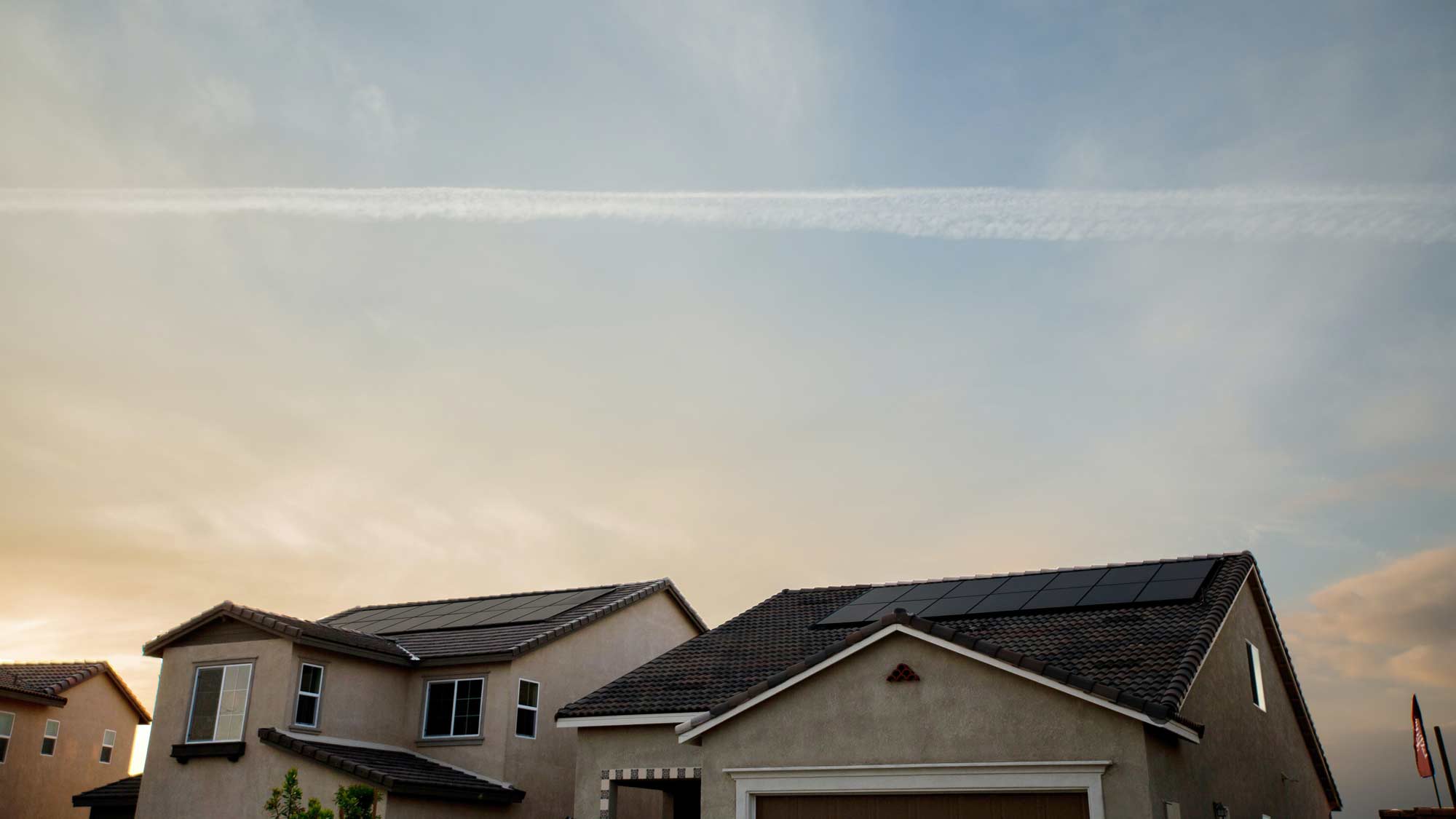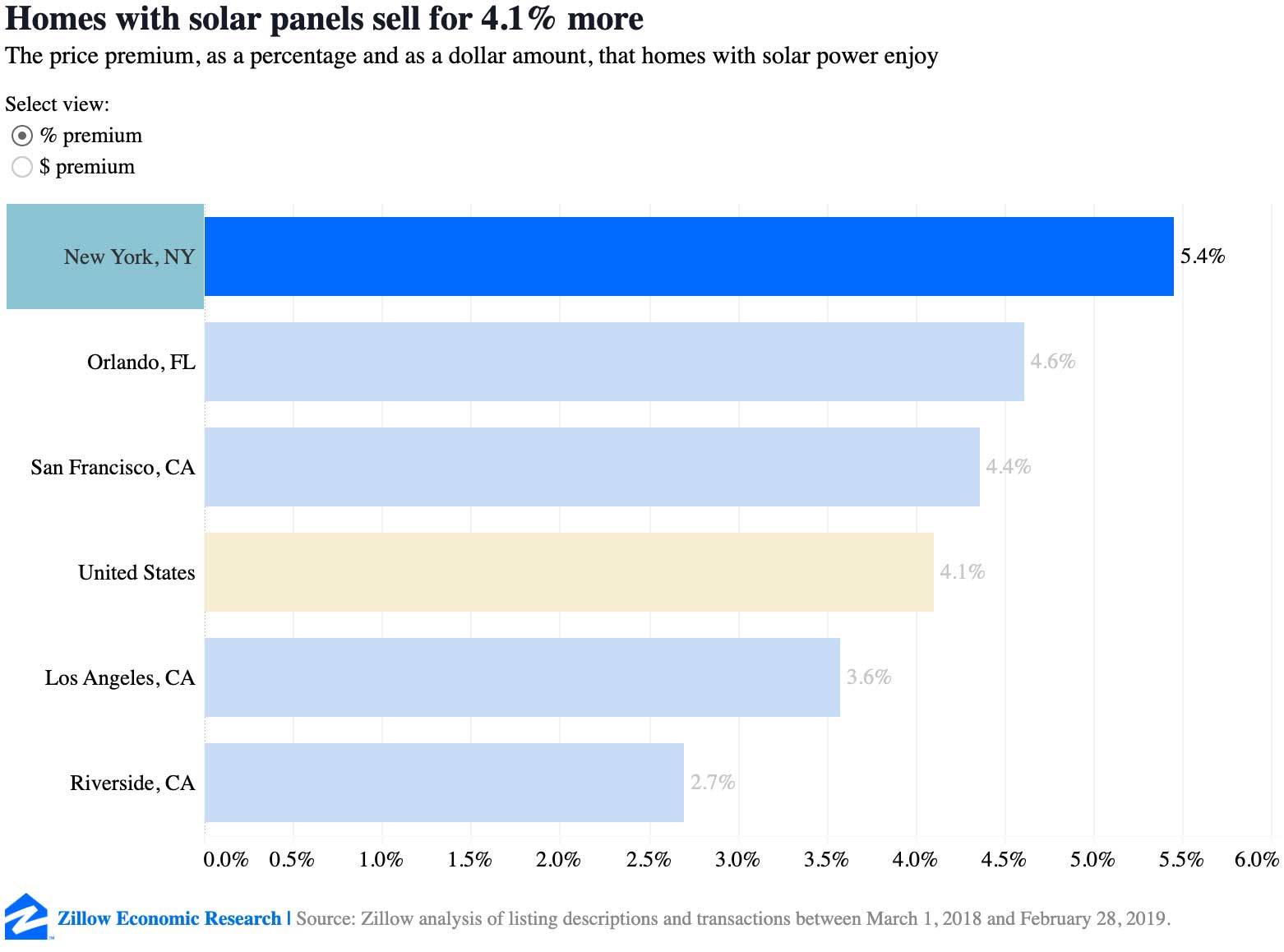
Can solar panels really increase the value of my Nevada home? In most cases the answer is no and that's because 99% of the time the solar panels are not owned by the home owner. As a Nevada real estate agent I get asked this question a lot. And in every case, it was because that client was on the receiving end of a sales pitch. The sales pitch was either from a company that sells the solar panels or a company that is in the business of financing the sale of the solar panels. So let's first talk for a minute about what that sales pitch looks like before we slide into the answer to the question.
So the sales pitch is generally multi-pronged. We can install solar panels, the cost of the panels while steep can be financed. So the panels cost thousands or even tens of thousands of dollars to purchase and install on the house. However, available low cost financing solutions mean that you pay nothing upfront. Your monthly debt service for those solar panels is quite low. And the immediate savings on your electricity bill is more than the debt service on the loan for the solar panels, meaning from the very first day that those panels come online, you are money ahead in terms of your ongoing expenses because your electricity savings is going to more than pay for the cost of the loan.
But that isn't the whole story. The sales pitch usually includes an assertion that is going to increase the value of your Nevada property, and they'll also usually mention that under the right set of circumstances, you may be a net negative energy user, meaning that on certain days under certain circumstances, your panels will produce more energy than your house is consuming thereby allowing you to sell electricity out on the grid where the utility company is paying you for electricity instead of the other way around.
Can Solar Panels Increase the Value of your House?
Let's look at the claim that it's going to increase the value of your house. When I spent a little while doing internet research trying to find out if there was any objective body of research, the first thing I found is that the overwhelming majority of sites that you come across are solar-related sites, meaning they are hardly unbiased sources of information. The source that I've seen cited in personal finance publications and real estate-related websites over the last year is one that comes from Zillow Research. And I would say that is at least in the recent past, the most substantial and unbiased source of information on this particular subject.
Zillows; Solar Panel Research

So let me show you a graph that comes right from Zillow Research. And this is what made its way into the headlines in lots of other publications. Homes with solar panels sell for 4.1% more. And you'll see that the yellow bar in this graph shows that average for the entire United States. And then you'll see several local markets with three examples where that average exceeds the national average, and then you'll see markets that underperform that national average. Note that those next two markets below the national average are Los Angeles and Riverside, California. That's a state that tends to be infamously green and you would think would have lots of subsidies and incentives for people to do solar panels, and yet even in those markets, Riverside, California, for example, the average increase in home value was 2.7%. And remember in markets like that in California, those average home prices are much, much higher than typical home prices here. And by much higher, I mean a multiple often of what home prices are here.
The Zillow Research study did not indicate that there were any locations where the presence of the solar panels decreased the value of the property. So I guess that's some consolation, but it varies widely. So anecdotally, I will tell you, I have yet to have a client who is willing to pay more for an otherwise identical house because the house had solar panels. I have seen clients where their purchasing decision, which house to pursue was related to energy efficiency factors, such as the presence of geothermal heating and air conditioning on a rural property that would have otherwise been electric only or on and propane, but I've not seen a willingness of consumers to pay more money for a house in the Champaign or Mahomet market area on the resale market because it had solar panels on it. So I think you would want to assume that the solar panels are not going to add to the value of your home.
Now that doesn't mean you don't necessarily want to consider doing it, but it does change that calculus somewhat. So let me first jump to the worst downside situation you could find yourself in.
Financing Solar
Remember how I talked about that cheap and easy available financing for the solar panels? Well, that's a second lien on your house. So think about this. You get the solar panels put on your house, you finance that over let's say 10 or 12 or 15 years, and then let's say some unexpected change in circumstance has you selling your house and leaving the area unexpectedly. And it could be a good circumstance. It doesn't have to be bad. You could have gotten a job offer you never saw coming and it's too good to refuse. And then what has happened is you may have enjoyed a few dollars a month of net savings, the difference between your electricity savings and the cost of the monthly debt service for your solar panels.
But if you've still got 80% of the balance of that loan hanging out there, which may be $10,000 or $15,000 or $20,000, and in most cases, it doesn't appear that the presence of those solar panels adds any value to your house, then you're going to be serious money behind. You will have collected only a few hundred or maybe a few thousand dollars and yet you're going to have the second loan balance with many thousands, possibly tens of thousands of dollars of additional debt at the time of sale.
You also have some other issues with the house. So for example, many of the sites that I've looked at indicate that Nevada solar panel vendors will recommend that you have your roof replaced before the installation of the panels if your roof has less than 10 years estimated remaining life on it. The idea being you don't want to pay to put the panels on the roof and then have to pay to take them all down to change a roof just a few years later. But if you're changing a roof seven or eight or nine years ahead of when the roof would have actually required replacement, you're now accelerating and collectively spending depending on the size of your house $5,000 to $25,000 on a roof. So you can then put thousands or tens of thousands of dollars of solar panels on your roof that are going to have multitudinous connection points to your roof, meaning that you've now got potentially dozens of penetrations through your roofing material that are going to be potential failure points. So the list of downsides keeps growing.
Now that doesn't mean this doesn't make sense for some people, but here's who it does make sense for. Assume that you're going to see no bump and value from the solar panels. Look at it solely from the standpoint of your anticipated tenure in that property. The realistically estimated electricity savings and some realistic assessment that you, you personally will be there long enough to pay off that solar infrastructure investment with energy savings and be money ahead.
And so in our marketplace, the best example I can give would be a tenured faculty member who knows with great certainty that that person can, they may not, but they can spend the whole rest of their career at College of Southern Nevada. Somebody who knows that they have a highly secure job and they're in a property that they are going to be happy with for the long term. This absolutely may be a great idea.
And of course, I don't want to disregard something that's just good for the environment. It doesn't necessarily have to line your pocket if it is helping to save the planet. I certainly don't want to sound like I'm discounting that. But I want to make sure that if you find yourself on the receiving end of a solar sales pitch, you are aware that you're indebting yourself, likely putting a lien against your house, creating multitudinous downsides with respect to future home maintenance and possible roof failure points, and you may not actually see the savings if you don't stay for the long term.
- Is There Gaming In Mesquite Nv
- Mesquite Nevada Easter Weekend 2022
- Can Solar Panels Increase My Nevada Home Value
- Mesquites Housing Market Is Hot May 2022
- The Va Loan Process With The Department Of Veteran Affairs
- A Beginners Guide To Real Estate Investment
- How Does A Buyers Agent Get Paid
- Mesquite Nevada Real Estate Report 2022

